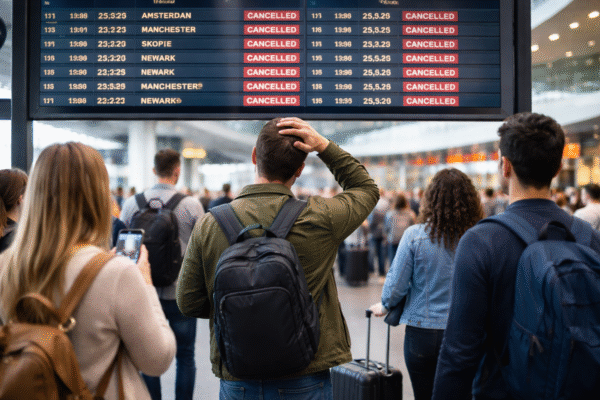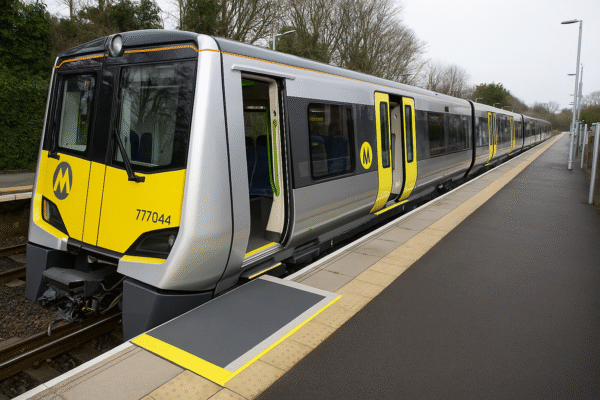The Liverpool City Region’s new fleet of Class 777 trains has redefined the standards of accessibility in the UK’s transport sector. At the National Transport Awards in London, the fleet received the prestigious title of ‘Best Practice in Diversity, Inclusivity and Accessibility’, marking a major achievement not just for the city region but for rail passengers nationwide.
The recognition highlights Liverpool’s forward-thinking commitment to ensuring that rail travel is easy, safe, and comfortable for everyone, including those with mobility and sensory impairments. The success of the Class 777 trains signals a transformative moment in the drive toward accessible rail travel, setting a benchmark for other regions to follow.
Investment in Accessibility and Passenger Comfort
The Class 777 fleet represents a £500 million investment in the future of public transport. What makes this initiative stand out is the community-driven approach behind its design. Over a period of 18 months, more than 40 residents—many with disabilities or mobility challenges—were consulted. Their feedback directly shaped the features of the trains, ensuring that the final product was not just functional but genuinely inclusive.
One of the standout features of the Class 777s is the sliding-step technology. This system allows passengers to board level with the platform, eliminating the traditional gap that has long been a challenge for wheelchair users, parents with prams, and travelers with heavy luggage. This innovation enhances safety, reduces accidents, and makes traveling more dignified for passengers of all abilities.
Step-Free Access by 2030: A Bold Commitment
The new trains are only part of Liverpool City Region’s wider ambition. The authority has pledged to achieve step-free access across all 87 stations by 2030. Currently, 61 stations are fully accessible, with plans underway to upgrade key stops such as Rock Ferry, Walton, Port Sunlight, and Aigburth.
This ambitious target ensures that by 2030, every passenger—local resident, business traveler, or tourist—will be able to use the region’s rail system without facing barriers. The project demonstrates how inclusive transport can support both local communities and the region’s growing tourism sector.
National Recognition and Industry Influence
Liverpool’s achievement has not gone unnoticed. The Class 777 trains have sparked interest from across the UK, with other rail operators visiting the city to study the project’s success. Transport Focus, a major industry body, has hailed the initiative as an example of best practice in customer-centered rail innovation.
The Class 777s also won ‘Accessibility Achievement of the Year’ at the National Rail Awards earlier in 2025, further cementing Liverpool’s leadership in inclusive transport. These awards position the city region as a model for how accessibility can be integrated into large-scale infrastructure projects.
Leadership and Customer Experience
The success of the project is closely tied to the leadership of Janet Roach, Customer Delivery Manager, whose dedication earned her a finalist spot in the ‘Woman of the Year’ category at the National Transport Awards. Her focus on aligning design innovation with customer service has been pivotal in ensuring that the trains do more than just meet accessibility standards—they provide a genuinely positive passenger experience.
Roach’s role reflects the importance of leadership in driving change and setting ambitious goals in the transport industry.
A Boost for Liverpool’s Tourism and Economy
Accessible transport has far-reaching benefits beyond commuting. Liverpool is one of the UK’s most visited cities, known for its cultural landmarks, historic waterfront, and sporting heritage. By improving the accessibility of its rail network, the city is strengthening its appeal as a destination for inclusive tourism.
Tourists with mobility needs can now travel with greater independence, making visits to attractions such as the Royal Albert Dock, Anfield Stadium, and Liverpool Cathedral more accessible. Improved transport infrastructure also supports the city’s role in hosting international conferences, cultural festivals, and cruise ship arrivals, all of which contribute to the local economy.
Innovation Driving Sustainability
In addition to accessibility, the Class 777 fleet emphasizes sustainability and efficiency. The trains are lighter, more energy-efficient, and capable of running on both electric and battery power. This dual-mode capability reduces carbon emissions and supports the city’s environmental goals.
By investing in sustainable and inclusive rail, Liverpool City Region demonstrates that innovation can serve multiple objectives: accessibility, environmental responsibility, and economic growth.
A Model for the Future of UK Rail
The Class 777 project proves that accessible rail travel is about more than compliance—it is about reimagining how transport systems can work for everyone. Liverpool’s inclusive approach, shaped through consultation and delivered with innovation, is now seen as a model for the future of UK transport.
The city region’s work resonates beyond rail: it represents a philosophy that accessibility should be central to public services, enabling equal opportunities for all citizens and visitors.
Conclusion: Setting a National Benchmark
The Liverpool City Region’s new trains are not just rolling stock; they are symbols of progress and inclusivity. The award-winning Class 777 fleet has set a national benchmark for accessible rail travel, supported by a broader strategy to make all stations step-free by 2030.
With strong leadership, community engagement, and investment in technology, Liverpool has positioned itself as a pioneer in creating a railway that reflects the needs of all passengers.
As other regions look to replicate this success, Liverpool’s example will remain a touchstone in the movement toward inclusive, sustainable, and world-class public transport. For passengers today and for generations to come, the Class 777 trains represent more than travel—they represent independence, equality, and the promise of a more connected future.
For more travel news like this, keep reading Global Travel Wire















